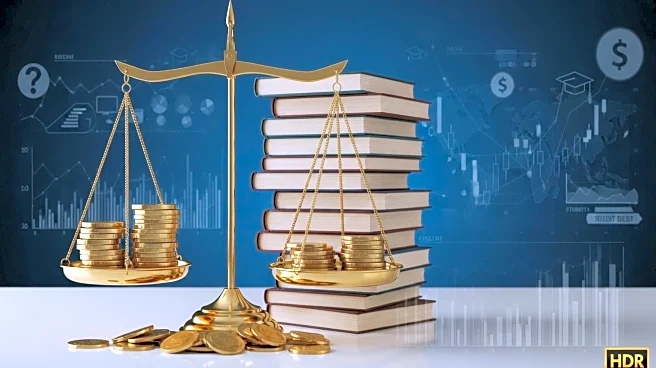What's Happening?
Credit scores in the U.S. are dropping at the fastest pace since the Great Recession, as Americans face high living costs and the resumption of student debt payments. The national average FICO score has decreased by two points this year, marking the most significant drop since 2009. This decline is attributed to a growing number of borrowers falling behind on car loans, credit cards, and personal loans. Younger Americans, particularly Gen Z, are experiencing significant financial pressure due to high student debt and challenging job market conditions. The disconnect between Wall Street's record highs and Main Street's financial struggles highlights the uneven economic recovery.
Why It's Important?
The decline in credit scores is a critical indicator of financial stress among American consumers, particularly younger generations burdened by student debt. This trend could have broader implications for the economy, as lower credit scores can limit access to credit and increase borrowing costs, potentially slowing consumer spending and economic growth. The situation underscores the challenges faced by those not benefiting from stock market gains or rising home values. Policymakers and financial institutions may need to address these disparities to support economic stability and growth.
What's Next?
As student debt payments resume, further declines in credit scores could occur, particularly among younger borrowers. Financial institutions may need to adjust lending practices to accommodate these changes, while policymakers might consider measures to alleviate student debt burdens. The ongoing economic recovery and job market conditions will play a crucial role in determining the financial well-being of American consumers. Monitoring these developments will be essential for stakeholders in the financial and policy sectors.
Beyond the Headlines
The decline in credit scores raises ethical and social concerns about economic inequality and access to financial resources. The impact on younger generations could have long-term consequences for their financial stability and ability to build wealth. Addressing these issues may require a reevaluation of student loan policies and broader economic reforms to ensure equitable opportunities for all Americans.









